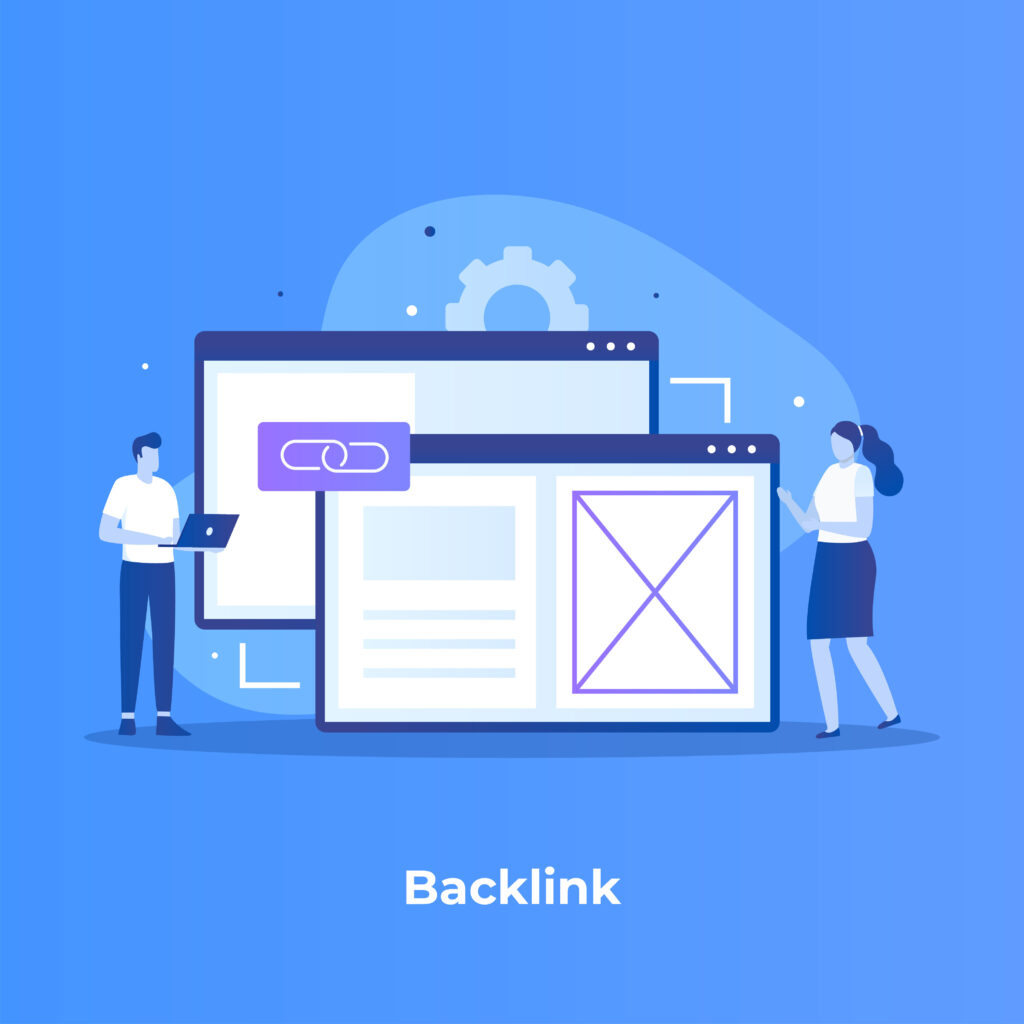Backlinks are the backbone of SEO, and they play a critical role in determining your website’s search engine ranking. In this blog, we’ll take a deep dive into what backlinks are, why they’re important, and how you can use them to improve your website’s ranking.
Contents
What are Backlinks?
Links that take visitors from one website to another are known as backlinks. Think of backlinks as a validation of content or an endorsement through another reputable source. Essentially, they help search engines understand how valuable and credible your website is. Backlinks can be gained organically through creating high-quality content that other websites want to reference and link to or through outreach efforts in which you reach out to other websites and pitch them on the value of linking back to your site.
While backlinking can help improve your ranking on search engine result pages, it’s important not to game the system or try to manipulate rankings with spammy links – this approach will do more harm than good and even search engines penalize or ban these.
Why are Backlinks Important for SEO?
When it comes to SEO, backlinks are undoubtedly a crucial factor that cannot be overlooked. Search engines regarded these links as a vote of confidence and trust, which ultimately leads to higher rankings on the search engine results page (SERP).
1- Backlinks play a significant role in determining the authority of a website. Search engines consider the number of quality links that point to a website as a sign of its credibility and value. Thus, the more backlinks a website receives, the more authoritative it becomes in the eyes of search engines. The logic behind this is simple – if multiple websites are linking to a particular site, it must be providing something valuable and relevant to its audience.
2- Backlinks help search engines understand the relevance and context of a website. Search engines use crawlers to analyze and index web pages with these links. A backlink from a relevant and trustworthy website tells search engines that the content on your site is valuable and relevant to the topic. This, in turn, leads to your website ranking higher in search results pages in response to specific keywords.
3- Backlinks help drive referral traffic from other websites. When other websites link back to your site, it can increase the possibility of referral traffic. Referral traffic arrives from other websites, and it is an essential factor for any online business to succeed. Referral traffic can result in increased conversions and sales for an online business.
4- Backlinks are an essential factor in off-page optimization. Off-page optimization deals with external factors that affect the website’s rankings. Backlinks fall under the category of off-page optimization, which means that they are vital for improving a website’s ranking.
5- High-quality backlinks help build relationships with bloggers and other webmasters. Building a good relationship with other webmasters and site owners can result in numerous advantages, such as getting more high-quality backlinks. Collaborating with webmasters and bloggers can help generate valuable content and increase the chances of obtaining high-quality backlinks.
Types of Backlinks

There are several types of backlinks:
1- Natural Backlinks: These are links that occur organically without any effort on your part. Your material is significant enough to other websites that they link to it.
2- Editorial backlinks: These are hyperlinks that are incorporated into the text of an article or blog post. These links are often included because the website owner believes that the content on the linked page is relevant and valuable to their readers.
3- Guest Post Backlinks: These are links that are included within a guest post that you have written for another website. The link is usually included in the author’s bio or within the body of the article.
4- Forum Backlinks: These are links that are included within forum posts or comments. These links can be valuable for SEO if the forum is relevant to your niche.
5- Social Media Backlinks: These are links that are included within social media posts or profiles. While these links are often no-follow, they can still help to drive traffic to your website.
6- Directory Backlinks: These are links that are included within online directories. While directory links are not as valuable as they used to be, they can still help to improve your website’s SEO.
7- Image Backlinks: These are links that are included within the alt text of an image. While these links are not as valuable as other types of backlinks, they can still help to improve your website’s SEO.
How to Build Quality Backlinks
Building quality backlinks is an important part of SEO, as they can help to increase your website’s visibility and rankings in search engine results pages.
Here are some tips for building quality backlinks:
1- Create high-quality content: The best way to attract backlinks is to create high-quality content that is useful, informative, and engaging. If your content is valuable and relevant, other websites are more likely to link to it.
2- Guest posting: Guest posting on other relevant websites is a great way to build quality backlinks. When you contribute a guest post, you can include a link back to your website in your author bio or within the body of the article.
4- Broken link building: Broken link building involves finding broken links on other websites and offering to replace them with links to your content. This strategy can be effective if you find broken links on high-authority websites.
5- Resource link building: Resource link building involves creating a valuable resource, such as an infographic or a comprehensive guide, and then promoting it to relevant websites. If your resource is useful and informative, other websites are more likely to link to it.
6- Social media promotion: Promoting your content on social media can help to attract backlinks. If your content is valuable and relevant, other websites may link to it after seeing it on social media.
7- Linking to others: Linking to other relevant websites can also help to attract backlinks. When you link to other websites, they may reciprocate to your website.
Common Mistakes to Avoid When Building Backlinks
Here are some mistakes to avoid when building backlinks:
1- Using spammy tactics: Avoid using spammy tactics such as buying links, participating in link schemes, or using automated link-building tools. Search engines penalize these strategies and hurt their SEO.
2- Focusing only on quantity: It’s important to focus on building high-quality, relevant backlinks, rather than just focusing on quantity. A few high-quality backlinks from authoritative websites can be more valuable than many low-quality backlinks.
3- Ignoring relevance: Make sure that the websites you are getting backlinks from are relevant to your niche and audience. Backlinks from irrelevant websites may not provide much value for your SEO.
4- Neglecting anchor text: Anchor text is the text that is used to create a hyperlink. It’s important to use relevant, descriptive anchor text for your backlinks, rather than using generic phrases such as “click here”.
5- Overusing exact match anchor text: While anchor text is important, it’s also important to avoid overusing exact match anchor text. This can look spammy to search engines and harm your website’s SEO.
6- Focusing only on homepage links: It’s important to build backlinks to multiple pages on your website, not just your homepage. This can help to improve the overall authority and ranking of your website.
7- Not monitoring backlinks: It’s important to regularly monitor your backlinks to ensure that they are still alive and relevant. If you find any low-quality or irrelevant backlinks, take steps to remove them.
If you are looking for the Best Digital Marketing Agency for your Business please contact Bliss Marcom.
Office Address in Noida.



